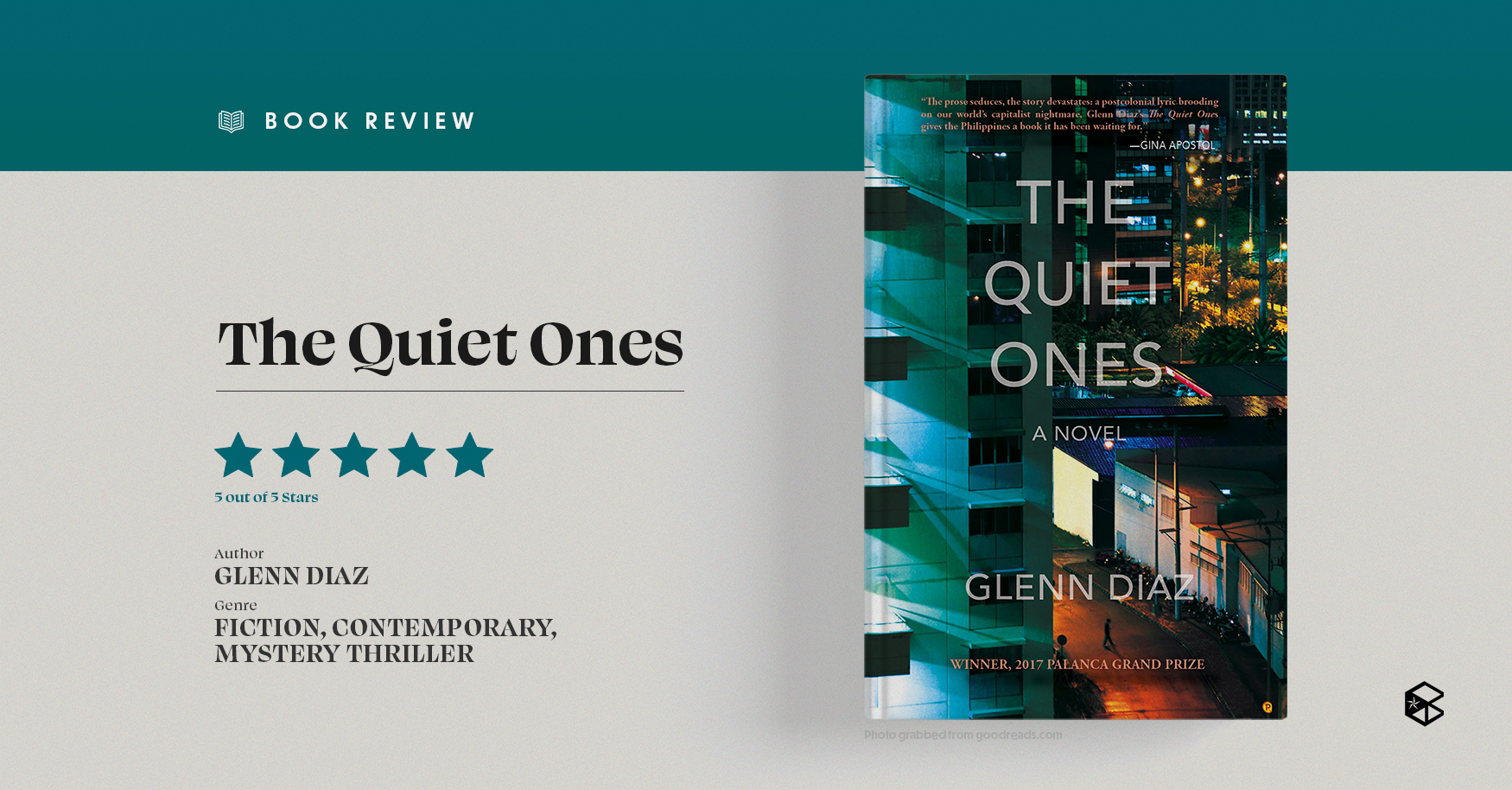Title: The Quiet Ones
Author: Glenn Diaz
Genre: Fiction, Contemporary, Crime Thriller
Rating: 5/5
Set in the sprawling city of Manila, The Quiet Ones barges in as a crime thriller novel, but once it has taken its place in our minds and gripped us by the collar, it morphs into an imperative meditation on culture and identity. With gritty wit and bold candor, The Quiet Ones lays out the urban-neurotic map of our time.
Right from the start, author Glenn Diaz didn't hesitate to showcase his literary prowess on full display. Immediately, we are thrown into the story with Alvin, anxiously waiting for his delayed flight like a petulant child. The police are probably scouring his hotel room by now. What will become of him? Will he beat the system and escape, spending the rest of his days somewhere with the fruit of his crime or will he be the spectacle of the next day’s TV Patrol?
Diaz’s work earned the Palanca Grand Prize in 2017, but the work has already transcended mere accolades, achieving a narrative impact that extends far beyond the confines of its prestigious recognition.
Neocolonial Inferno
Huddled in one of the many cubicles at Magellan Solutions, Alvin, a BPO worker, discovers a way to “acquire” money from his company. Alongside a couple of co-workers-turned-accomplices, they embark on their escape from the life of a BPO worker, finally fleeing the neocolonial-built inferno. However, after the death of his mother, Alvin finds himself alone, his crime without a cause, and slowly peeling away the remaining rolled bands of P300 notes.
Here, Diaz skillfully places us in a purgatorial state of quiet, with Alvin as a solitary fugitive in reflection, suspended in either his fall or his exultation. The memories of his call center job seep in and unfold as a cunning critique of the burgeoning trend of labor outsourcing from foreign countries.
Manila comes alive in the novel’s details, protruding to the reader with a grip that leads you into its intricate facets. Diaz draws vivid sketches of Alvin’s suffocating relationship with the city and its traffic-riddled avenues, rendered with spurts of misanthropic jest that often overtake the life of a BPO worker. If you find yourself puzzled by its occasional cryptic prose, you only need to look out the windows to the towering buildings of Manila standing jeeringly, or gaze at the hypocrisy of a newly built skyway over a field of shanty rooftops, or follow the Ariadne's thread-like electrical posts; there you will find the answers.
The novel’s fatigue-inducing bombardment of details doesn't aim to calm the frustrated appetite but rather to churn and stir it further, making it impossible for us to escape its captivating impact.
Peripheral narratives
Although the novel's central theme revolves around crime, it's the peripheral accounts that elevates it into a fine piece of Filipino literature. Diaz simmers us in the seemingly gridlocked lives of the characters by passing the spotlight from one perspective to another—with each shift, the story grows with more enriching sinews. The narrative navigates through narrowing streets and convoluted anecdotes, at times extending into entire chapters. Yet, lurking in the corner of each account is the impending present and the crime demanding its due pay.
The writing transfigures personal history and intricate relationships, and presents them to us as instrumental proofs to the post-colonial fragment we are living in. It's a book that grippingly pulls you in from the very beginning, traverses between the pieces of our shattered identity, and upon turning the final page, what you encounter is a brut analysis, shaded under the pretense of a novel.
You can grab a copy of "The Quiet Ones" from Ateneo De Manila University Press. It is also available at various Fully Booked branches, as well as online on Lazada and Shopee.


